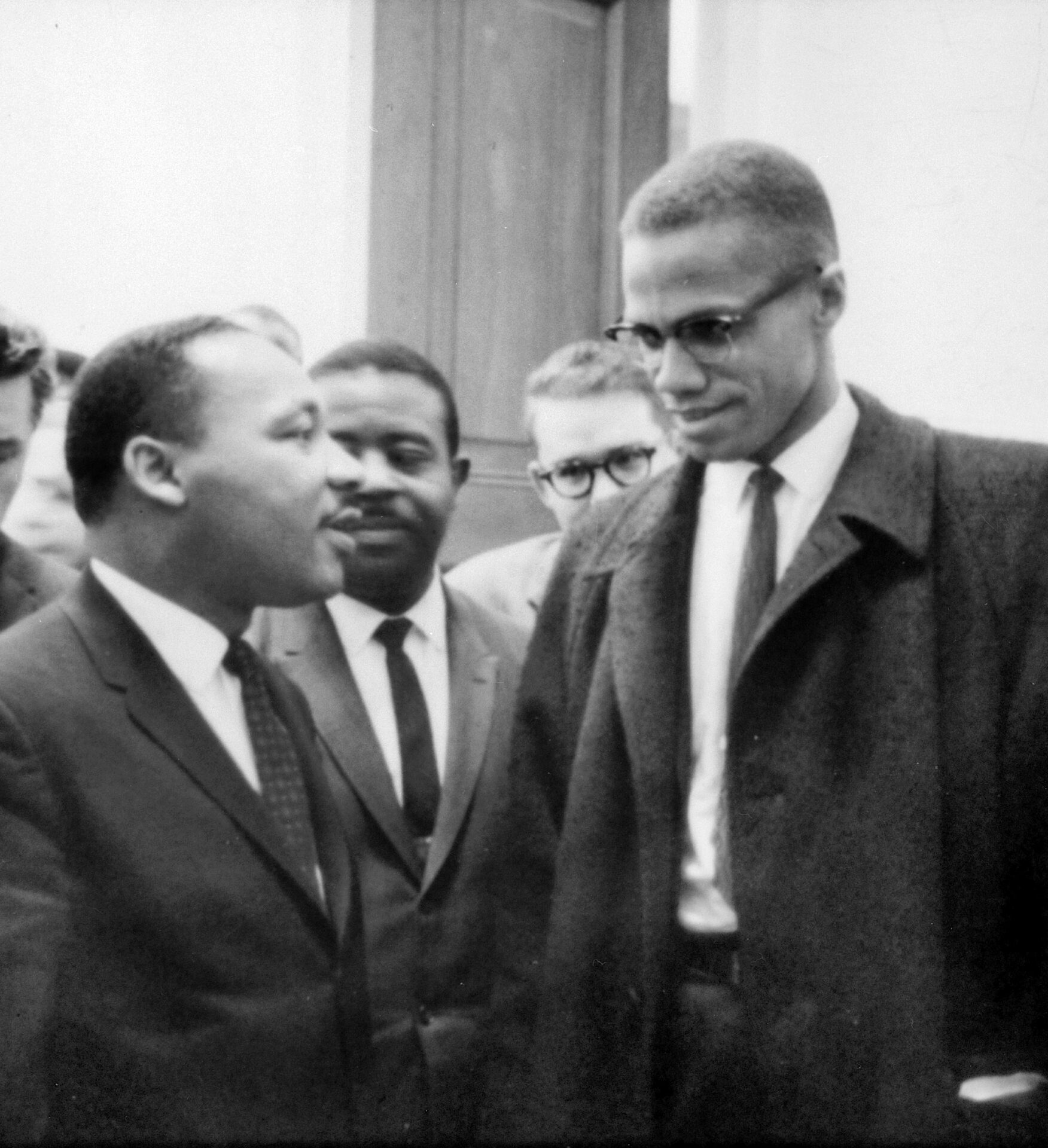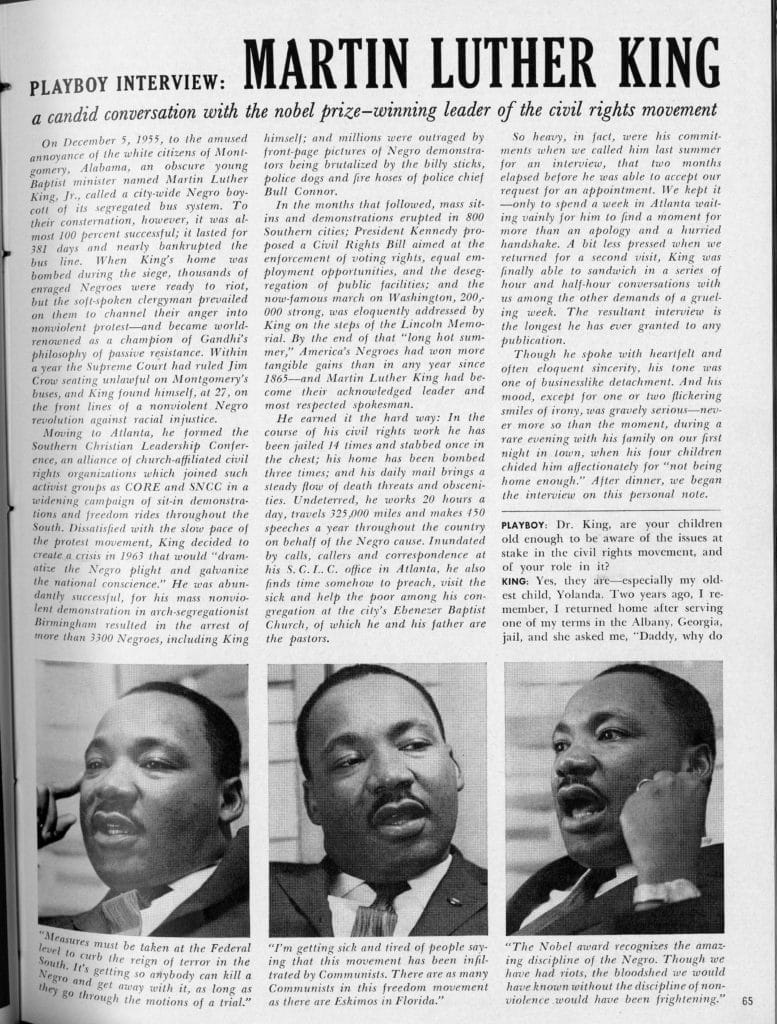
*Dr. Martin Luther King Jr. may not have criticized Malcolm X as fiercely as Alex Haley claimed in his infamous Playboy interview with MLK, according to the author of a new biography about the “I Have a Dream” icon.
Haley interviewed Dr. King for Playboy magazine in 1965. At the time, it was the longest published interview King ever did. Haley, whose book, “The Autobiography of Malcolm X: As Told to Alex Haley” was released nine months after Malcolm X’s assassination in 1965, asked King if he had any thoughts on Malcolm X. In the published article, part of King’s response – including calling Malcom X’s stance “fiery, demagogic oratory,” was found to have been fabricated, according to author Jonathan Eig.
“I think its historic reverberations are huge,” Eig told The Washington Post of the revelation. “We’ve been teaching people for decades, for generations, that King had this harsh criticism of Malcolm X, and it’s just not true.”

The former senior special writer for The Wall Street Journal, who previously wrote acclaimed biographies of Muhammad Ali and Lou Gehrig, told The Washington Post that he stumbled upon the discovery while in the Haley archives at Duke University doing research for, “King: A Life,” due out May 16. Eig said that when a research subject has given a long interview, he’ll look through the archives of the journalist who conducted it, hoping to find notes or tapes with previously unpublished anecdotes. While he didn’t find a recording of Haley’s interview with King in the Haley archives, Eig said he did come across an unedited transcript of the full interview, likely typed by a secretary straight from a recording. Eig said that page 60 of the 84-page document finds Haley asking Dr. King, “Would you care to comment upon the articulate former Black Muslim, Malcolm X?”
Eig said that King responded: “I have met Malcolm X, but circumstances didn’t enable me to talk with him for more than a minute. I totally disagree with many of his political and philosophical views, as I understand them. He is very articulate, as you say. I don’t want to seem to sound as if I feel so self-righteous, or absolutist, that I think I have the only truth, the only way. Maybe he does have some of the answer. But I know that I have so often felt that I wished that he would talk less of violence, because I don’t think that violence can solve our problem. And in his litany of expressing the despair of the Negro, without offering a positive, creative approach, I think that he falls into a rut sometimes.”
The response does not appear this way in Haley’s published interview with King in Playboy. While Eig says the top part is nearly identical with the discovered transcript, the quote ended in Playboy like this: “And in his litany of articulating the despair of the Negro without offering any positive, creative alternative, I feel that Malcolm has done himself and our people a great disservice. Fiery, demagogic oratory in the black ghettos, urging Negroes to arm themselves and prepare to engage in violence, as he has done, can reap nothing but grief.”
Eig notes: “Some of the phrases added to King’s answer appear to be taken significantly out of context, while others appear to be fabricated.”
Eig continued: “It is a standard practice in journalism when publishing Q&A-style interviews to make minor changes, such as removing excessive ‘ums’ or truncating long answers where the subject repeats their point over and over again or wanders from the topic at hand. But journalists typically take great pains to ensure any changes do not alter the intended meaning of an interviewee’s response. In addition, outlets commonly will include an editor’s note informing the reader of such changes. What Haley appears to have done amounts to ‘journalistic malpractice.”
The Washington Post’s Gillian Brockell notes in the article: “Haley’s legacy has been tarnished by accusations of plagiarism and historical inaccuracy in his most famous book, ‘Roots,’ but this latest finding could open up more of his work to criticism, especially ‘The Autobiography of Malcolm X: As Told to Alex Haley.’”
OTHER NEWS ON EURWEB: Jonathan Majors Reportedly Dating Meagan Good – VIDEO + Social Media Reactions!
We Publish News 24/7. Don’t Miss A Story. Click HERE to SUBSCRIBE to Our Newsletter Now!





